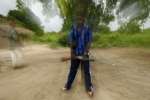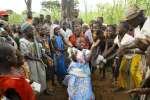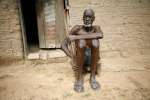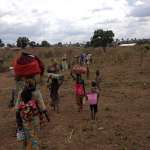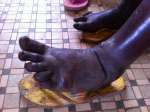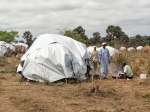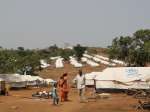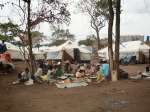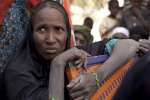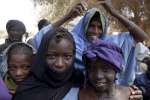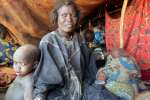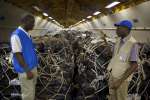- Text size
 |
|  |
|  |
| 
- Français
NE Nigeria insecurity sees refugee outflows spreading to Cameroon
News Stories, 18 June 2013
GENEVA, 18 June (UNHCR) – The UN refugee agency said on Tuesday the on-going crisis in northeastern Nigeria's Adamawa, Borno, and Yobe States is causing new arrivals of refugees in Niger, and now in Cameroon.
"In Cameroon, a UNHCR team visited areas along the Nigeria-Cameroon border in the Far North region on Friday," UNHCR spokesman Adrian Edwards told a briefing in Geneva. "They reported the presence of over 3,000 Nigerians."
Crossings of Nigerians into Cameroon began a week ago, with people reporting they had fled a confrontation between the Nigerian army and Boko Haram insurgents some 10 kilometres from border.
Most of those who have arrived are women and children. They are being hosted in churches and schools, and rely on food from churches and local population. UNHCR said it was working with the authorities to relocate the refugees to safer places away from the border.
Meanwhile in Niger, the UN refugee agency said it had sent aid by trucks from Niamey to the southeastern Diffa region, where over 6,000 persons have arrived from northern Nigeria in the past weeks. That includes 2,692 Nigerian nationals as well as 3,544 returning Niger nationals and others, mainly Chadians. Mats, blankets, jerry cans, soap, buckets, mosquito nets and kitchen items have been pre-positioned in Diffa, Bosso, Kablewa and Menesewa for distribution to both Nigerian refugees and Nigerian returnees.
"Most new arrivals in Niger are women and children coming from rural villages across the border and from Maiduguri and Baga towns," said Edwards.
People are still arriving in Niger. On 11 June, gunshots were heard in Malam Fatouri, a village on the Nigeria side, near the border, prompting most of the population to flee into Niger, UNHCR said. They travelled by foot and motorcycles and found refuge with host families just across the border.
Hundreds of new arrivals have also been reported in an area some 60 km north of Diffa, local authorities told UNHCR. At the same time, UNHCR teams observed that some displaced persons from Nigeria are returning home after a few days in Niger or shuttling between the two countries depending on the security situation in Nigeria.
In Chad there have been no further arrivals of Nigerians beyond the 155 received last week. There the border is officially closed.
The Nigerian government imposed a state of emergency on the Adamawa, Borno and Yobe states in the northeast of the country in May.







